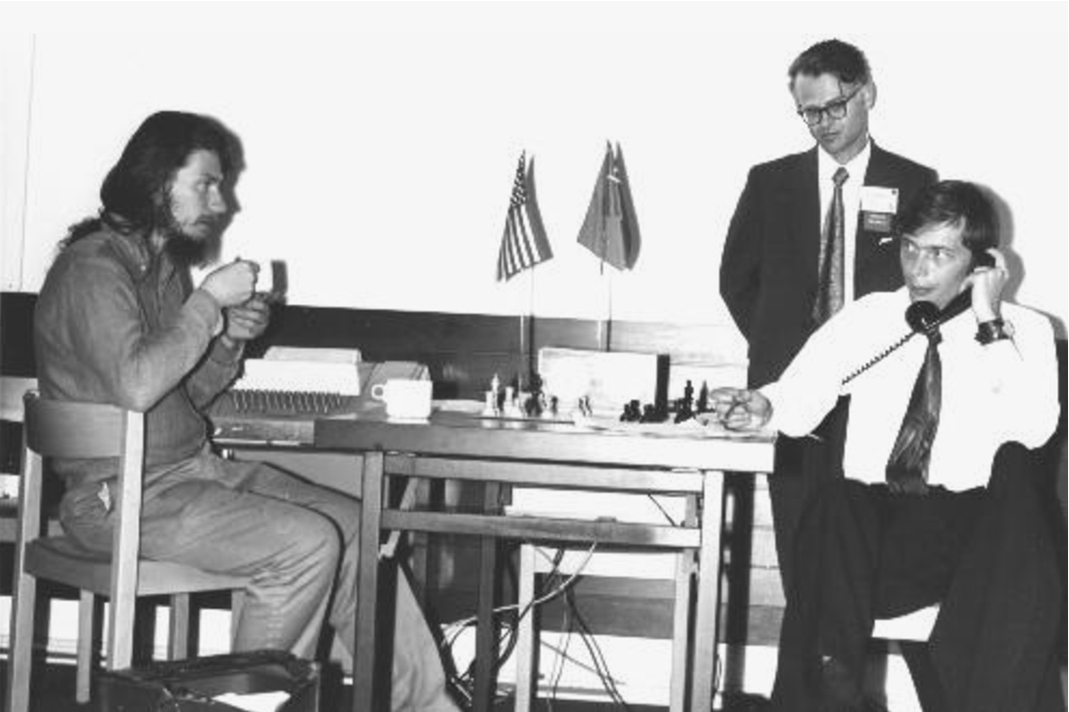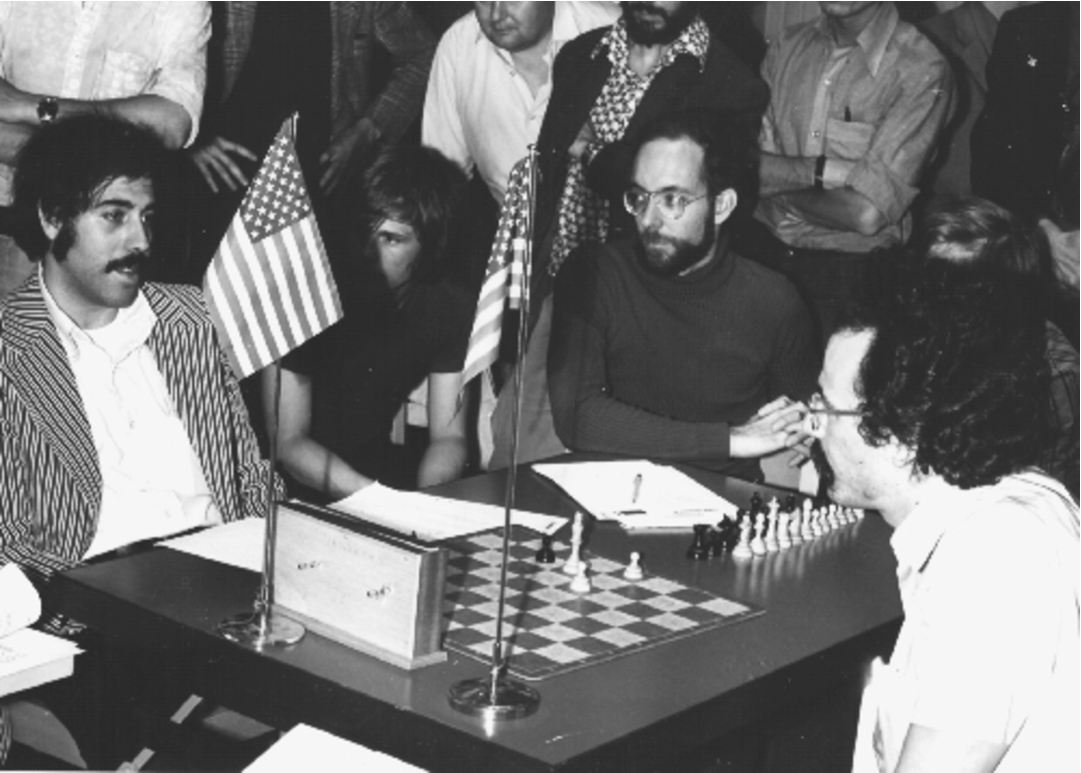2024 world computer chess championships: The end of an era 1974–2024
Abstract
After 50 years, the final World Computer Chess Championships will be held in Santiago de Compostela, Spain, October 19–24, 2024. Most of the world’s strongest programs will be competing for the coveted Shannon Trophy. In addition to the tournaments, there will be a very special event: the
The 2024 World Computer Chess Championships (WCCC) will be held October 19–24 as part of the European Conference on Artificial Intelligence (ECAI) in Santiago de Compostela, Spain (ECAI, 2024). This is the 50th anniversary of the WCCC (see Table 1), so it is only appropriate to partner with ECAI, who is also holding their 50th anniversary.
In August 1970, six chess-playing programs and their developers gathered in New York City to compete in the 1st United States Computer Chess Championship, part of the Association for Computing Machinery’s (ACM) National Conference (Schaeffer, 2020). This important event in the history of AI research began a series of annual competitions. The benchmarking of computer performance at chess continues to this day, longer than any other experiment in computer science history.
Table 1
World Computer Chess Championship, 1974–2024. (Chess Programming Wiki, 2024)
| # | Year | Location | Winner |
| 1 | 1974 | Stockholm, Sweden | Kaissa |
| 2 | 1977 | Toronto, Canada | Chess 4.6 |
| 3 | 1980 | Linz, Austria | Belle |
| 4 | 1983 | New York, United States | Cray Blitz |
| 5 | 1986 | Cologne, West Germany | Cray Blitz |
| 6 | 1989 | Edmonton, Canada | Deep Thought |
| 7 | 1992 | Madrid, Spain | ChessMachine |
| 8 | 1995 | Shatin, Hong Kong | Fritz |
| 9 | 1999 | Paderborn, Germany | Shredder |
| 10 | 2002 | Maastricht, The Netherlands | Junior |
| 11 | 2003 | Graz, Austria | Shredder |
| 12 | 2004 | Ramat-Gan, Israel | Junior |
| 13 | 2005 | Reykjavík, Iceland | Zappa |
| 14 | 2006 | Turin, Italy | Junior |
| 15 | 2007 | Amsterdam, The Netherlands | Zappa |
| 16 | 2008 | Beijing, China | HIARCS |
| 17 | 2009 | Pamplona, Spain | Junior, Shredder, Deep Sjeng |
| 18 | 2010 | Kanazawa, Japan | Rondo, Thinker |
| 19 | 2011 | Tilburg, The Netherlands | Junior |
| 20 | 2013 | Yokohama | Junior |
| 21 | 2015 | Leiden, The Netherlands | Jonny |
| 22 | 2016 | Leiden, The Netherlands | Komodo |
| 23 | 2017 | Leiden, The Netherlands | Komodo |
| 24 | 2018 | Stockholm, Sweden | Komodo |
| 25 | 2019 | Macau, China | Komodo |
| 26 | 2022 | Vienna, Austria | Komodo |
| 27 | 2023 | Valencia, Spain | Stoofvlees |
| 28 | 2024 | Santiago de Compostela, Spain | To be determined |
In 1974, the first World Computer Chess Championship (WCCC) was held in Stockholm as part of the International Federation for Information Processing (IFIP) conference (Hayes and Levy, 1976). The competition brought together world-class academics, company researchers, and home hobbyists to demonstrate the latest research developments in AI algorithms (see Figs 1 and 2). This event and its successors spurred on competitors to generate new ideas and hone their programs annually, in preparation for these tournaments. This activity culminated in the 1997 victory of Deep Blue in its exhibition match against Garry Kasparov. Deep Blue (and its predecessors Chip Test and Deep Thought) were frequent competitors in ACM chess tournaments and in two WCCCs.
Whereas in 1974, the best programs were competing at a relatively low level of chess strength (1600 on the ELO scale), today they are well beyond superhuman (3600 ELO). Chess continues to be an important application for AI research (as well as in other fields), as demonstrated by DeepMind’s breakthrough program MuZero, a successor of AlphaGo (Schrittwieser et al., 2020).
The World Computer Chess Championship continues to this day, with the most recent competition being held in Valencia, Spain in July 2023 (see Table 1).
After 50 years, it’s time to close this important chapter. The top programs are unbeatable by humans; making them stronger has little research value. These programs rarely make a mistake. Most games between the programs end in a draw, reinforcing the generally accepted notion that perfect play in chess will lead to a draw. The only performance result not yet achieved is to solve chess, and that won’t happen for a long time to come.
Fig. 1.
The 1st World Computer Chess Championship, Stockholm, 1974. Tech 2 (Alan Baisley) versus eventual champion Kaissa (Mikhail Donskoy), with unidentified spectator. (Photo: Monroe Newborn.)

Fig. 2.
David Slate (left), co-author of Chess 4.0, playing Fred Swartz (center) and Victor Berman (right), co-authors of Chaos. The programs tied with Ribbit for the runner-up position in the 1974 World Championship. (Photo: Monroe Newborn.)

The 2024 event will be the last ICGA World Computer Chess Championship. We expect to have most of the strongest programs participating. Further, we plan a very special session: CHESS, the
Please join us for this memorable and historic occasion!
References
1 | Chess Programming Wiki ((2024) ). https://www.chessprogramming.org/World_Computer_Chess_Championship. |
2 | ECAI ((2024) ). European Conference on Artificial Intelligence. https://www.ecai2024.eu. |
3 | Hayes, J. & Levy, D.N.L. ((1976) ). The World Computer Chess Championship. Edinburgh: University Press. |
4 | Schaeffer, J. ((2020) ). The 1970 United States computer chess championship: The start of the longest-running experiment in computer science history. ICGA Journal, 42: (2–3), 72–85. doi:10.3233/ICG-200149. |
5 | Schrittwieser, J., et al. ((2020) ). Mastering Atari, Go, Chess and Shogi by planning with a learned model. Nature, 588: (7839), 604–609. doi:10.1038/s41586-020-03051-4. |




